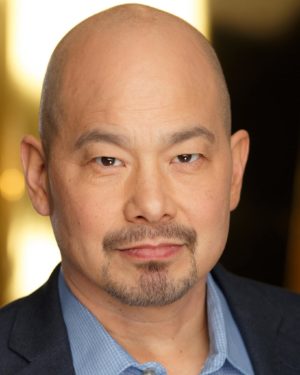by Tim Lounibos
It’s an amazing time
The past several weeks have been absolutely amazing for the Asian American entertainment industry. Crazy Rich Asians blew past $100 million at the box office in less than three weeks, becoming the most successful rom-com in almost a decade on its way to surely cracking the top ten all-time list for that genre.
To All the Boys I’ve Loved Before is a huge success on Netflix to the point where it has actually raised the popularity of the Japanese yogurt drink Yakult and the stock value of the company who produces it.
Searching had the second highest per-screen box office average in its opening week, trailing only CRA, and more than doubled its distributor’s box office expectations.
As a result, Hollywood has begun greenlighting Asian American projects left and right, and is being more inclusive in casting Asian American actors in general. It’s an amazing time, one to be celebrated.
Geoffrey Owens
Yet, thoughts of African American actor Geoffrey Owens dominate my mind.
His recent Trader Joe’s job-shaming has brought attention to how difficult it is today to make a living as an actor. The general public, for the most part, has a very skewed perspective. If people watch actors in the movies or on shows and recognize them in public, they conclude that those actors are well off—that they’re living the high life. If you’re an actor who’s made it to the top of the profession, this very well could be the case (at least, while you’re at that top); but for the vast majority of actors, this is sadly and laughingly not the situation—and for Asian American actors in particular, well, let me share my story.
Working for that big break
I came to Hollywood in the early 90s. To pay the bills, I was a waiter, then a tennis instructor for young kids, did some temp work, and finally worked at a place that put on casting director/agent showcases for actors. In 1993 and 1994, I landed acting roles with enough regularity to leave my day job, something over 90 percent of actors couldn’t do at the time. For the next fifteen years, I was one of the lucky ones, but barely. And in order to achieve this, I was an acting jack-of-all-trades: film/tv supporting roles, commercials, video games, corporate training videos, voice over looping gigs (where you provide the vocal tracks for all the background/extra performers in a project): whatever I could do to pay those bills until my big break. Some years I made a solid middle-class living, others I squeaked by with the help of revolving credit and loans; but by 2009, a career in acting became absolutely unsustainable, especially as the main breadwinner of a family of four. My tax return—which included a lead role in a very worthwhile independent film (Diana Lee Inosanto’s “The Sensei”)—sported an acting salary that, including residuals from almost 15 years of work, was under $10,000 and was probably still better off than most of my AA acting brothers and sisters.
Hollywood wasn’t ready
From a talent standpoint, it’s not like I was delusional in expecting to achieve that “big break.” It had been drilled into me by a number of acting coaches and books that the combination of talent, professionalism, looks, likeability, opportunism, and perseverence would pay off. Everyone gets their chance in Hollywood, according to them. It’s just a matter of being ready for it.
Well, I was ready. Various industry, mainstream, and community print media touted me as a leader of the new wave of stereotype-breaking, leading AA men following on the heels of Jason Scott Lee, Russell Wong, Dustin Nguyen, and Garrett Wang. A. Magazine put it best: “Asian Hollywood’s Young Man of the Moment – Tim Lounibos.”
Yet it turned out that it was Hollywood who wasn’t ready. Instead of AA leading men, they looked for sidekicks or delivery men or foreigners—roles I was either not right for or refused to do. More often than not, they just weren’t looking, and the reality is that you can’t feed a family (let alone oneself) on that, so I ended up leaving the business for seven years in order to get a full-time job in another industry where opportunities existed across the board and being a man’s man was actually appreciated, regardless of ethnicity.
More opportunities for AA actors?
That’s why I am fascinated and focused on the story of Geoffrey Owens, empathizing with him and all of my AA acting sisters and brothers who are waiters, custom jewelry makers, Uber and Lyft drivers, substitute teachers, and Trader Joe’s grocery baggers when they are not afforded the opportunity to work on a set. Will the current hunger in Hollywood for all things Asian—where execs are currently tripping over themselves to find more Asian content—change conditions for us, providing many more and actually career-sustaining opportunities? It remains to be seen.
For many of us, the day job will probably still be necessary. For others, hopefully we’ll begin, if not living the high life, to at least have the opportunity to make a living at what we love to do.
*****
Tim Lounibos has been a professional Asian American Film/TV actor since 1993 and is recurring on the upcoming season for Amazon Studios’ Bosch. Previously, he was Development Director for aMedia, Producer of the Ammy Awards, Founder & Co-Artistic Director of Lodestone Theatre Ensemble, and Business Administrator for East West Players. www.imdb.me/timlounibos Instagram/Twitter: @timlounibos
has been a professional Asian American Film/TV actor since 1993 and is recurring on the upcoming season for Amazon Studios’ Bosch. Previously, he was Development Director for aMedia, Producer of the Ammy Awards, Founder & Co-Artistic Director of Lodestone Theatre Ensemble, and Business Administrator for East West Players. www.imdb.me/timlounibos Instagram/Twitter: @timlounibos
- Excited
- Fascinated
- Amused
- Disgusted
- Sad
- Angry








